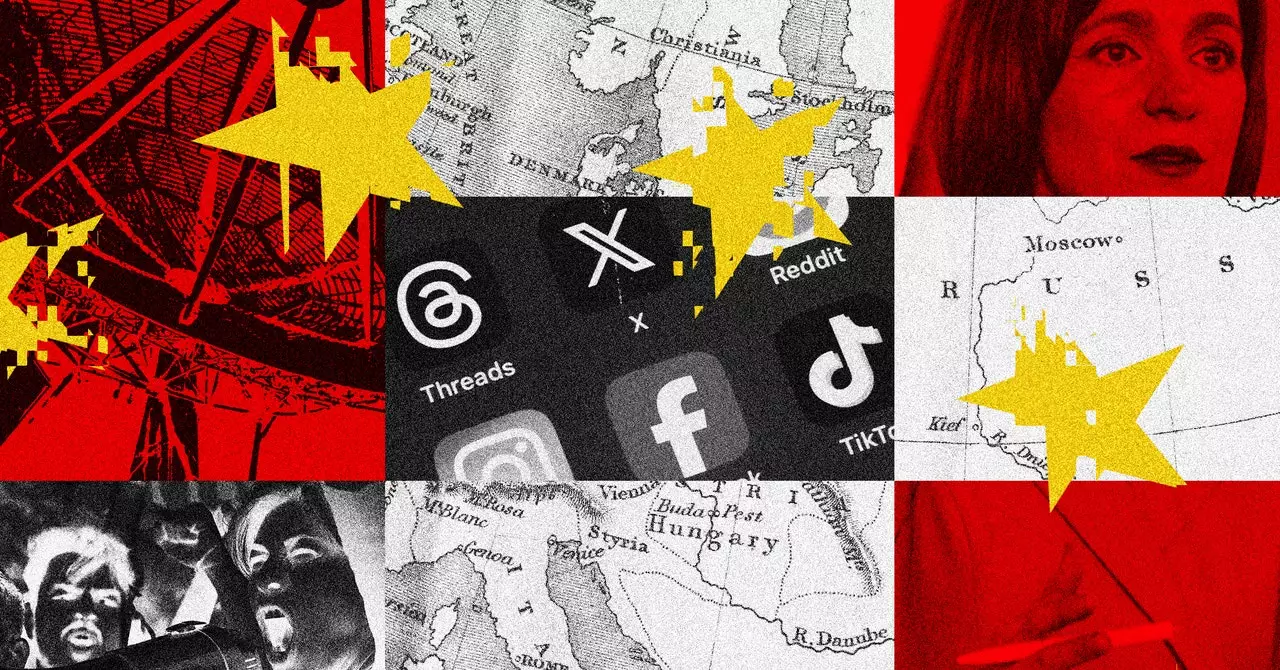When actors like Brian Baumgartner from “The Office” become unintentional political pawns, it signals a dangerous intertwining of entertainment and political disinformation. Baumgartner’s recent appearance in a TikTok video, where he insidiously calls for the removal of Maia Sandu, Moldova’s pro-European president, exemplifies the bizarre nature of modern political marketing. The actor, speaking in poorly articulated Russian, attempts to rally support against Sandu under the pretense of solidarity with the Moldovan populace. This type of outreach, coordinated through Cameo—an app allowing fans to procure personalized messages from celebrities—raises questions about ethical implications in the intersection of celebrity culture and serious political discourse.
The situation in Moldova paints a harrowing picture of how social media can be manipulated to fuel discord and influence political opinion. For years, Moldova has been a target of Russian disinformation campaigns, vulnerable due to its geographical and political position wedged between the European Union and Ukraine. As the country gears up for crucial elections, the emergence of atypical celebrity endorsements, particularly from American figures, seems to be a well-orchestrated part of a larger pro-Kremlin strategy. In this setting, social media platforms have become fertile ground for bots and misinformation, shaping narratives that are disruptive and deeply divisive within Moldovan society.
With the advent of the Ukraine conflict, malicious actors have leveraged social media even more aggressively. Using targeted ads featuring dubious origins, such as accounts with Vietnamese names, malicious entities have saturated platforms like Facebook with anti-government sentiments, effectively drowning out authentic local voices. The cascading effects are evident: Misinformation thrived, as ordinary citizens reported floods of political advertisements that distorted reality and eroded trust in democratic institutions. A staggering figure emerges: researchers traced at least $200,000 in ad revenue linked to these pro-Kremlin campaigns on Meta alone, underscoring the financial gains from fostering instability and confusion.
Warnings for a Global Society
Ana Revenco, Moldova’s former interior minister and current head of a strategic communication center aimed at combating disinformation, offers a sobering perspective. She emphasizes the unprecedented intricacies of the disinformation campaigns that have targeted Moldova and asserts that this situation serves as a dire cautionary tale for other nations. The ease with which malicious entities can execute sophisticated strategies on social media platforms is alarming. Revenco articulates a universal vulnerability, declaring, “If [Russia] can use them here, they can use them everywhere.” This sentiment reveals a fundamental threat to democratic integrity not confined to Moldova but extending to global societies, urging an urgent reevaluation of how social media is governed and regulated.
As Moldova stands on the precipice of significant electoral choices, the stakes have never been higher. The infiltration of political discourse by dubious celebrity endorsements and aggressive disinformation tactics highlights a stark reality. Societies worldwide must recognize the implications of this dynamic and remain vigilant against the manipulation of narratives through social media. The unfolding drama in Moldova is not simply a local concern; it resonates globally, reminding us that the foundations of democracy are increasingly at risk, necessitating proactive measures to curb the tide of misinformation.

